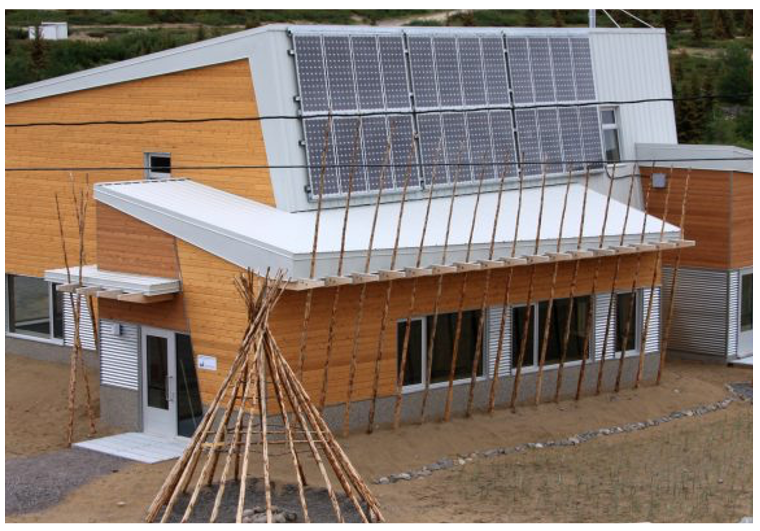Whapmagoostui-Kuujjuarapik Research Complex, CA

Whapmagoostui-Kuujjuarapik Research Complex, CA
The research station is owned and run by the Centre d’études Nordiques (CEN: Centre for Northern Studies) with its secretariat based at the Université Laval, Québec, Canada. The station is located on Cree land and is run in collaboration with the Cree First Nation of Whapmagoostui.
This station is the CEN’s principal field station and has operated since the 1970s, with diverse research projects on past and present environments. In 2010, major upgrades to the station were undertaken, consisting of the construction of a state-of-art Community Science Centre to serve the needs of the circumpolar science community for research planning, information exchange, national research workshops, and coordination of field operations, and the local communities for information exchange, identification of northern research needs, science training of northerners, exchange of traditional knowledge, and outreach activities.
Current projects include work on biodiversity and dynamics of northern aquatic ecosystems, impacts of melting permafrost in the context of global warming, wetlands paleoecology, restoration of vegetation in degraded sites, and research on mercury dynamics (air, precipitation, snow).
Contribution to POLARIN key research challenges: 1, 2, 3, 4, 5, 6, 7
Contact: Station Manager mickael.lemay[at]cen.ulaval.ca
Website
https://www.interact-gis.org/Home/Station/67
Location
The CEN Whapmagoostui-Kuujjuarapik Station (55°16’50” N, 77°45’10” W) is located on the eastern shore of Hudson Bay at the maritime limit of James Bay, and in the adjacent villages of Whapmagoostui (Cree First Nation) and Kuujjuarapik (Inuit).
Facilities and Services offered
The station counts seven buildings including wet and dry labs, a greenhouse, a dormitory, a cafeteria (with full meal services during the summer season), offers vehicles rental, wireless internet, rental of sampling and camping equipment, an onsite station manager and a full climate station. The station also includes a workshop and a garage. A total of 13 rooms and a dormitory (28 beds) are available.
In addition, the center offers a conference room with a capacity for 50 participants, and a permanent, interactive display on local natural history and on CEN research activities.
What is included in the Access
Unit of access: User/day
Modalities of access offered: In-person access, remote access
Transportation, food (catering services), various scientific and research equipment as well as coordination on site. The typical duration of work is usually around 10 to 15 days. Researchers are integrated into the scheduling of the infrastructure by booking their stay directly with CEN WK administration, and by coordinating and planning research activities with CEN’s team.
Availability for Access
See the table in the dedicated Transnational Access call page.
Time frame for access preparations
The time frame required depends on the logistic needed to support the mission, but usually requires more than 1 month before of the planed fieldwork.
Permits, licenses and training
No permits systems in place yet in Nunavik. However, CEN always recommends to contact the communities to explain the project and get their acceptance for the research project.
ATV, skidoo and boat licenses are needed if researchers want to use them.
Medical guidelines
Not required.